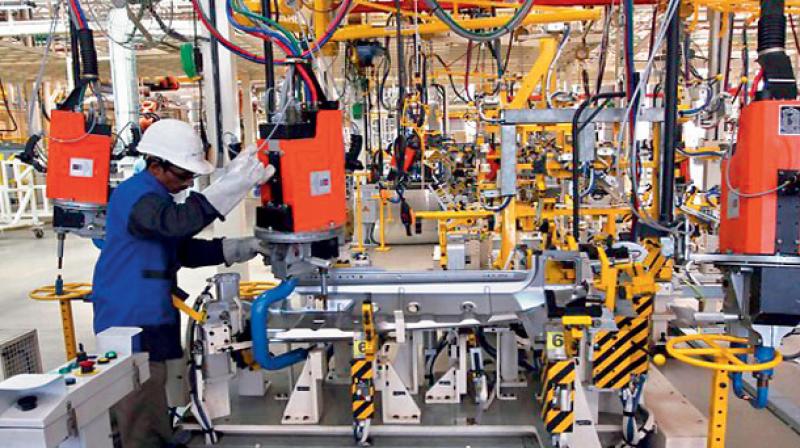The capital goods field, also known as the industrial sector, encompasses a vast array of businesses that manufacture or distribute goods used by other businesses, rather than directly sold to consumers. This industry plays a critical role in supporting countless other sectors and keeping the global economy humming.
Many recognizable names fall under the capital goods umbrella, alongside a surprising number of companies that may not immediately come to mind. This article delves into what the capital goods field entails, explores some of the leading companies within it, and highlights the diverse career paths this sector offers.
Beyond Heavy Machinery: The Scope of Capital Goods
While companies like John Deere and Caterpillar, renowned for their heavy machinery used in agriculture and construction, are prime examples of capital goods producers, the field extends far beyond such traditional equipment manufacturers.
In essence, any company that creates a product used by another business to provide a good or service qualifies as part of the capital goods sector. This broad definition encompasses a wide range of industries, including:
- Aerospace and Defense: Boeing, Raytheon, and Lockheed Martin are giants in this sector, manufacturing jetliners, defense systems, and other specialized equipment.
- Technology: Siemens, a global leader in technology, produces goods for infrastructure, transportation, and healthcare, with a focus on areas like artificial intelligence and smart buildings.
- Manufacturing Equipment: Companies like 3M, with its extensive product portfolio catering to various industries, play a vital role in providing the tools and machinery needed for manufacturing processes.
- Chemicals and Materials: Honeywell International is a prime example, of producing chemicals, engineered materials, and plastics used in various industrial applications.
- Transportation and Logistics: Union Pacific, a major railroad company, exemplifies how the capital goods field extends to transportation infrastructure and equipment.
- Rental Services: United Rentals, the world’s largest equipment rental company, provides construction and industrial companies with the temporary use of essential machinery and tools.
This list is not exhaustive, but it demonstrates the vastness of the capital goods industry. From the production of everyday office supplies used by businesses to the complex machinery that builds automobiles, the capital goods sector underpins countless aspects of the global economy.
Career Paths in Capital Goods: A World of Choice

The sheer diversity of the capital goods field translates into a multitude of career opportunities. Whether you’re interested in engineering, marketing, customer service, finance, or information technology, there’s a place for you in this dynamic sector.
Here’s a glimpse into some of the potential career paths within capital goods companies:
- Engineering: Design, develop, and maintain the complex machinery and equipment that keeps businesses running.
- Manufacturing: Oversee production processes, ensuring quality and efficiency in the creation of capital goods.
- Sales and Marketing: Promote and sell capital goods to businesses, understanding their specific needs and providing tailored solutions.
- Customer Service: Provide technical support and ensure customer satisfaction after the sale of capital goods.
- Finance and Accounting: Manage financial operations, analyze data, and ensure financial health within capital goods companies.
- Information Technology: Develop and maintain IT infrastructure, ensuring seamless information flow and communication within the organization.
This is just a starting point. Many capital goods companies offer training and development programs, allowing employees to gain new skills and progress within the organization. The opportunities for career growth and advancement are significant.
Advantages of a Career in Capital Goods
Several factors make the capital goods field an attractive proposition for job seekers:
- Impactful Work: Many capital goods contribute directly to solving problems in other industries, from developing efficient farming equipment to creating sustainable energy solutions. You can feel a sense of purpose knowing your work supports progress in various sectors.
- Job Security (with Nuances): Capital goods are essential for other industries to function. However, the field’s stability can be influenced by the global economy and supply chain fluctuations. While demand for capital goods will always exist, growth within the sector may vary.
- Diverse Opportunities: The vastness of the capital goods field offers a wealth of career options. You can leverage your existing skills or explore entirely new areas within this dynamic industry.
- Growth Potential: Many capital goods companies invest in employee development, providing opportunities to learn new skills and advance your career within the organization.
- Global Reach: Leading capital goods companies often operate internationally, opening doors to exciting global career opportunities.
Finding Your Place in the Capital Goods Field
With its vast scope and diverse career paths, the capital goods field offers a wealth of possibilities for both new and experienced professionals. Here are some tips to help you navigate this exciting sector:
- Identify Your Interests: Consider what aspects of business most appeal to you. Are you drawn to the technical side of engineering, the fast-paced world of sales, or the problem-solving nature of customer service?

